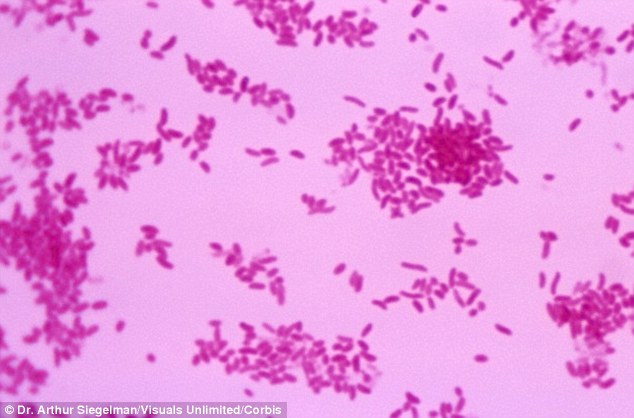roller
wiggle jiggle
- Messages
- 775
http://www.dailymail.co.uk/sciencet...-disease-piggybacking-weather-phenomenon.html
El Niño is spreading killer BACTERIA: Researchers find Cholera-like disease 'piggybacking' on weather phenomenon
PUBLISHED:21:56 GMT, 1 March 2016|UPDATED:22:20 GMT, 1 March 2016
El Niño could be transporting and spreading waterborne diseases like cholera thousands of miles, across oceans, with significant impacts for public health, researchers have warned.
They say illnesses caused by waterborne bacteria reported in Latin America seem to be moving in tandem with when and where warm El Niño waters make contact with the land.
Experts warned the finding could have 'huge significance for public health'.
CHOLERA - A VIRULENT KILLER
Cholera is an acute intestinal infection, caused by ingestion of food or water contaminated with the bacteria, vibrio cholerae.
It is extremely virulent, affecting both adults and children, and can kill within hours.
The incubation period is short, spanning from less than one day to five.
Those struck by the infection suffer copious, painless, watery diarrhoea that can quickly result in severe dehydration and death if treatment is not received quickly.

Cholera is an acute intestinal infection, caused by ingestion of food or water contaminated with the bacteria, vibrio cholerae. It is extremely virulent, affecting both adults and children, and can kill within hours
Around eight in 10 sufferers will develop no symptoms, but the bacteria can live in their faeces for up to 10 days, and are shed back into the environment, potentially infecting other people.
Among those who do suffer the symptoms, 80 per cent have mild or moderate experiences, while 20 per cent are at risk of the potentially fatal severe dehydration.
Researchers have estimated there are 1.4 to 4.3 million cases, and 28,000 to 142,000 deaths worldwide each year from cholera, according to the WHO.
Around 80 per cent of cases can be treated successfully with oral rehydration salts
El Niño is spreading killer BACTERIA: Researchers find Cholera-like disease 'piggybacking' on weather phenomenon
- Climate pattern has been in effect since last year
- Has now peaked but will remain strong and continue to influence world weather conditions in the coming months
PUBLISHED:21:56 GMT, 1 March 2016|UPDATED:22:20 GMT, 1 March 2016
El Niño could be transporting and spreading waterborne diseases like cholera thousands of miles, across oceans, with significant impacts for public health, researchers have warned.
They say illnesses caused by waterborne bacteria reported in Latin America seem to be moving in tandem with when and where warm El Niño waters make contact with the land.
Experts warned the finding could have 'huge significance for public health'.
CHOLERA - A VIRULENT KILLER
Cholera is an acute intestinal infection, caused by ingestion of food or water contaminated with the bacteria, vibrio cholerae.
It is extremely virulent, affecting both adults and children, and can kill within hours.
The incubation period is short, spanning from less than one day to five.
Those struck by the infection suffer copious, painless, watery diarrhoea that can quickly result in severe dehydration and death if treatment is not received quickly.

Cholera is an acute intestinal infection, caused by ingestion of food or water contaminated with the bacteria, vibrio cholerae. It is extremely virulent, affecting both adults and children, and can kill within hours
Around eight in 10 sufferers will develop no symptoms, but the bacteria can live in their faeces for up to 10 days, and are shed back into the environment, potentially infecting other people.
Among those who do suffer the symptoms, 80 per cent have mild or moderate experiences, while 20 per cent are at risk of the potentially fatal severe dehydration.
Researchers have estimated there are 1.4 to 4.3 million cases, and 28,000 to 142,000 deaths worldwide each year from cholera, according to the WHO.
Around 80 per cent of cases can be treated successfully with oral rehydration salts
